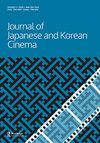Cinematic collage as an ethical response to the abject: Sang-mi Choo’s The Children Gone to Poland
引用次数: 0
Abstract
ABSTRACT In The Children Gone to Poland (2018), Sang-mi Choo employs different narrative styles not to faithfully present public history on North Korean orphans who were moved to Poland during the Korean War but to rewrite different groups of subjects who underwent painful experiences during the Cold War, such as North Korean war orphans, the Polish teachers who cared for them, and a North Korean refugee who risked her life during the 1990s. To create their dialogic engagement, Choo uses her personal experience and weaves them into her cinematic narrative. Her filmic endeavour, however, is often conflicting as her audiences encounter a non-linear story world in terms of editing. In addition, she experiments with her filmmaking by having a porous nexus among images capturing disparate spaces and times. Audiences become defamiliarized from the film narrative as historical truth and are instead aware of it as a careful construction creating a dialogic space. To explicate Choo’s cinematic project, this article employs the philosophical concept of gesture elaborated by Giorgio Agamben. Choo’s construction of an unconventional film narrative is an ethical response to the miserable subjects who still have painful memories and urgently seek to be heard.电影拼贴作为对卑鄙的伦理回应:赵相美的《去波兰的孩子》
在《去波兰的孩子们》(2018)中,秋相美采用了不同的叙事风格,不是忠实地呈现朝鲜战争期间被转移到波兰的朝鲜孤儿的公共历史,而是重写了在冷战期间经历痛苦经历的不同主题群体,如朝鲜战争孤儿、照顾他们的波兰教师、20世纪90年代冒着生命危险的朝鲜难民。为了创造他们的对话参与,周润发使用了她的个人经历,并将其编织到她的电影叙事中。然而,她的电影努力往往是矛盾的,因为她的观众在剪辑方面遇到了一个非线性的故事世界。此外,她还通过在捕捉不同空间和时间的图像之间建立多孔联系来实验她的电影制作。观众不再熟悉作为历史真相的电影叙事,而是意识到它是一个精心构建的对话空间。为了阐释周的电影项目,本文采用了乔治·阿甘本(Giorgio Agamben)所阐述的姿态哲学概念。周秋对非传统电影叙事的建构,是对仍有痛苦记忆、迫切寻求被倾听的悲惨主体的伦理回应。
本文章由计算机程序翻译,如有差异,请以英文原文为准。
求助全文
约1分钟内获得全文
求助全文
来源期刊

Journal of Japanese and Korean Cinema
Arts and Humanities-Visual Arts and Performing Arts
CiteScore
0.60
自引率
0.00%
发文量
16
期刊介绍:
Journal of Japanese and Korean Cinema is a fully refereed forum for the dissemination of scholarly work devoted to the cinemas of Japan and Korea and the interactions and relations between them. The increasingly transnational status of Japanese and Korean cinema underlines the need to deepen our understanding of this ever more globalized film-making region. Journal of Japanese and Korean Cinema is a peer-reviewed journal. The peer review process is double blind. Detailed Instructions for Authors can be found here.
 求助内容:
求助内容: 应助结果提醒方式:
应助结果提醒方式:


